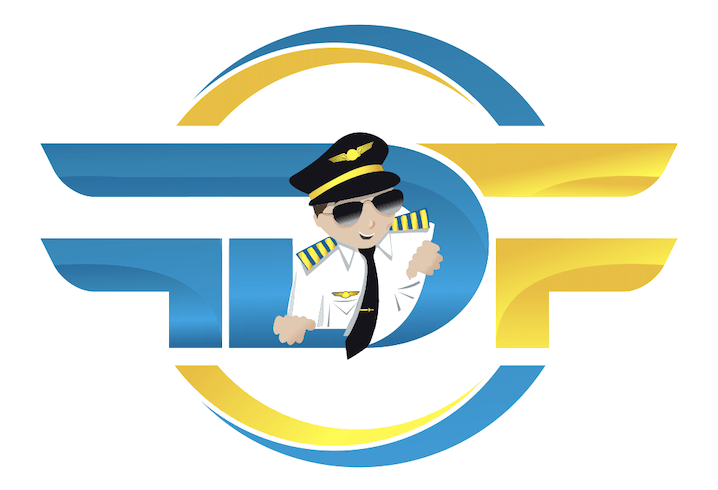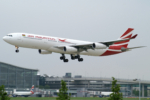DHL Express Bahrain Non Rated Second Officers / Cadet Pilots

Website DHL Express
DHL Express Bahrain are recruiting Second Officers for their base at Bahrain Airport for their B757 / B767 fleet.
Overall Role Purpose
- To act as second in command on DHL/SNAS and DHL International aircraft. To operate safely and efficiently in accordance with all company and regulatory rules and procedures.
- The Co-pilot is directly responsible to the Commander for assisting in the safe and efficient conduct of the flight. He will carry out all duties assigned to him by the Commander in accordance with Flight Deck Management and approved procedures. He will assume command if the Commander becomes incapacitated.
Specific Role Context
This position is to assist the Commander of the aircraft in any areas of responsibility.
Specific Role Challenges
- To maintain a sound knowledge and understanding of the applicable Civil Aviation Regulations, aircraft systems, Standard Operating Procedures and carriage of dangerous goods.
- To assist and support the Commander in all decision making processes.
- To foster solid working relationships with the crew on every flight in a dynamic environment where the First Officer could be flying with a different crew member on any given day of a week.
- To work in a team in achieving the highest level of OTP.
Accountabilities
Safety
- The Second Officer is responsible for assisting the Captain to ensure the safe and efficient conduct of the flight. He shall ensure that the aircraft to which he is assigned is airworthy, properly and adequately serviced and that the loading is proper and secure. He shall make himself familiar with the route and terminal areas to be used and ensure the weather and terminal reports indicate the flight can be made safely.
- Carry out such duties concerning the flight, in accordance with Company Standard Operating Procedures, including procedures, limitations and performance relating to the specific aircraft Type, as are allocated to him by the Commander.
- Confirm the safe navigation of the aircraft, maintaining a continuous and independent check upon both the geographical position of the aircraft and its safe terrain clearance.
- Volunteer such advice, information and assistance to the Commander, as may contribute to the safe and efficient conduct of the flight.
Standards
- He is responsible for assisting the Captain in the operation of the aircraft to achieve the highest possible standards of safety and proficiency at all times.
Regulatory
- Ensure compliance with BCAA/GACA Regulations and all company policies and procedures as specified in the company Flight Operations Manual, Standard Operating Procedures Manual and Aircraft Flight Manual.
- When pilot-in-command during the Commander’s absence from the flight deck, take any action he considers necessary under the circumstances in an emergency situation that requires immediate decision and action. In such cases he may deviate from rules, operational procedures and methods in the interest of safety.
Advisory
- Advise Management regarding any safety issues that affect or have the potential to affect operation of company aircraft
- Assist the Captain to advise the Maintenance Department regarding the serviceability of the aircraft and bring to his attention any item that may have the potential to affect the normal operation of that aircraft
- Advise Flight Dispatch /Management anytime that physical impairment of the pilot may affect the normal operation of the aircraft
- Advise Management, the appropriate Airport Authority and Regulatory Authorities regarding any incident, accident and other reportable occurrences as described in the company Flight Operations Manual
Procedural
- Operate in accordance with the company Flight Operations Manual, aircraft Standard Operating Procedures Manual and Aircraft Flight Manual. Comply with Air Traffic Control rules, procedures and instructions. Ensuring that any passengers are briefed on the location and use of emergency exits and relevant safety and emergency equipment.
Process
Prior to completing Type Rating
Eight (8) Months of general operations training will be assigned and conducted in Flight Operations office subject to discretion of Chief Pilot.
Aircraft Specific Type Rating Course
A full Type Rating course to be conducted at a designated facility where company standards and procedures will be tested at conclusion of course.
Before Flight:
- Read the Flying Staff Instructions.
- Ensure that Crewing are informed if the Commander has not reported for duty by the normal report time.
- In co-operation with the Commander collect and study the OFP, weather and NOTAM package, and confirm the fuel requirements.
- Check that the ATC plan is filed.
- Be responsible for refuelling and systems replenishment when no ground engineers are available.
- Cross check the take-off performance calculations for gross errors with the Commander. Having obtained the actual take-off weight, stabiliser trim units, flap setting, pack configuration and power requirement he will calculate the EPR/N1 and takeoff speeds, and complete the bug card.
During Flight:
- Tune and identify navaids as required in consultation with the Commander.
- Record initial ATC clearances and other data as required and conduct radio communications.
- Maintain good lookout, in keeping with the see and avoid principle, particularly during departure, arrival and flight in busy terminal areas.
- Maintain the navigation log, recording the progress of the flight and the fuel remaining.
- Calculate the landing data, complete the landing bug card and when required, complete the weather minima section.
- Complete the Technical Log for the Commander’s signature.
- File only the following documentation in the flight envelope:b) NOTOC.d) Plotting Chart – ETOPS flights only.
- e) An accurately completed OFP signed by the Commander.
- c) Fuel chit.
- a) Load sheet.
- Where no handling is available, carry out those actions normally performed by the agents as requested by the Commander.
- Where no engineering handling is available, assist the Commander as required with the post-flight check.
- Contact crewing as soon as possible if requested.
Skills / Qualifications
Skills ( Specific and or technical skills)
- Airline Transport Pilot License (Frozen)
- Experience commensurate with aircraft type and laid out in Part D of the Training Manual.
- Sound knowledge of the applicable Civil Aviation Regulations.
- Good communication skills are a prerequisite for this position.
- All components of CRM should be fully understood and continually practiced.
Competencies
- Customer Orientation: Is focused on identifying and understanding each customer’s needs. Expresses and acts on desire to assist customers in an efficient and friendly manner.
- Shaping Direction: Develops and communicates strategies and goals that achieve competitive advantage. Demonstrates a clear understanding of the organisation’s strengths, weaknesses, opportunities and threats.
- Business Acumen: Understands business principles and language, including the fundamentals of finance and profitability. Uses this understanding to achieve results and to increase the performance and profitability of our company.
- Cross Border Thinking: Has a holistic mindset and stays abreast of important trends that may affect our competitiveness as a group. Manages the business, giving priority to the international position of our company.
- Analysis: Breaks down a problem, situation or process into its component parts, separates the main issues from side-issues, understands the nature of parts and their relationship to one another. Seeks out and critically evaluates both numerical and narrative information. Draws accurate conclusions.
- Planning & Organizing: Sets clear and realistic goals and objectives. Establishes a course of action and a sequence of steps to ensure that activities and objectives are efficiently achieved. Is structured with good personal organization. Schedules time effectively and uses efficient work methods and tools.
- Decision Making: Makes timely and appropriate choices based on accurate analysis and experience. Uses sound judgment even in conditions of uncertainty. Anticipates impact of decisions and plans how to manage risk.
- Results Orientation: Continually seeks to accomplish critical tasks with measurable results. Overcomes obstacles and makes adjustments to achieve results. Focuses self and others to achieve targets aligned with business goals.
- Constructive Challenge: Contributes to an environment where people at all levels stand up for their ideas and where the status quo can always be challenged for the better.
- Building and Leading Teams: Knows the talent* needs of the team. Attracts and develops the people who can meet those needs. Encourages effective cooperation among team members and between teams. Inspires team spirit and the commitment to achieve high standards of performance.
- Teamwork: Works cooperatively with others to achieve target and objectives. Accomplishes own tasks in support of team goals.
- Building and Managing Partnerships: interpersonal styles to create and sustain effective relationships with business partners (e.g. suppliers, joint venture partners, industry groups, competitors, governments, unions) and colleagues. Is open to approaches that meet mutual goals.
- Commitment to Excel: Challenges self and others to exceed standards and achieve extraordinary results striving for best-in-class. Is not easily deterred when obstacles or delays are encountered.
- Self Management: Remains calm, objective and controlled in responding to urgent or demanding situations. Maintains effective performance under pressure. Stays positive.
- Influencing: Persuades others of the value of an approach or idea. Gains commitment and support and gets others to willingly take action.
Educational Qualifications
ATPL (Frozen)
Applications are online.

